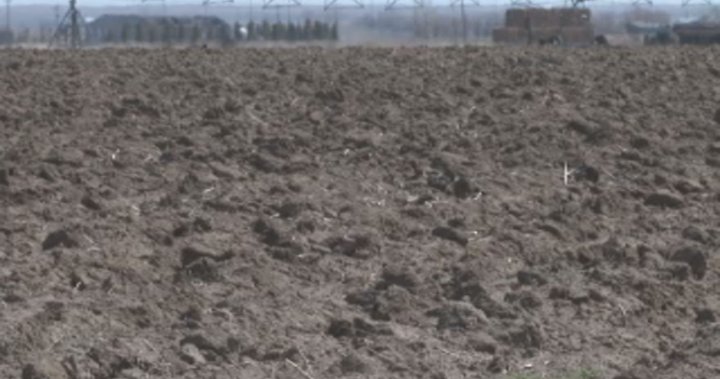Allison Davie, a farmer in Alberta, is facing a unique challenge this year with water restrictions on her farm, North Paddock Farms. Due to the restrictions, they will only be allocated eight inches of water, which is significantly less than the typical 18 inches needed for their potato crop. On the other hand, dry-land farmers like Dave Bishop are facing the situation with less strain as they do not grow specialty crops and can manage with the reduced water allocation.
The water restrictions for farmers are unprecedented and pose a significant challenge. Davie mentions that in her history on the farm, they have never had to deal with such low water allocations. This has led them to consider alternative measures, such as shuffling acres around on the farm, looking for extra water sources, and cutting back on irrigation for certain crops. Even farmers like Bishop, who do not rely on specialty crops, acknowledge that the situation is concerning and could become more challenging if there is no rainfall or further restrictions on water allocations.
Davie explains that they are taking steps to adjust their planting and irrigation practices in response to the water restrictions. They are planning to plant the same amount of Timothy as last year, but cut it only once instead of irrigating it after July. Additionally, they are planning to reduce the irrigation of their potato crop, despite having a successful yield last year. The unpredictability of Mother Nature adds an additional layer of uncertainty for both dry-land and specialty crop producers, as they rely on weather conditions beyond their control.
For Bishop and other farmers, the uncertainty of the situation is a constant concern. They are unsure of what the final crop yield will be, as it relies heavily on factors like rainfall and water availability. Despite being in a slightly better position than those relying on specialty crops, dry-land farmers are also at the mercy of the weather and water restrictions. The unknowns of farming and the reliance on external factors like water availability make the situation challenging for farmers like Davie and Bishop.
Overall, the water restrictions faced by farmers like Davie and Bishop are unprecedented and are requiring them to adapt their farming practices to manage with reduced water allocations. The uncertainty of the situation, compounded by the unpredictability of weather conditions, adds an additional layer of challenge for farmers as they navigate through the growing season. Despite the difficulties, farmers are working hard to find solutions and alternative measures to ensure their crops can still grow and thrive in the face of water restrictions. As they look to the sky for answers, they understand that ultimately, the final outcome is not in their hands but in the hands of nature.


